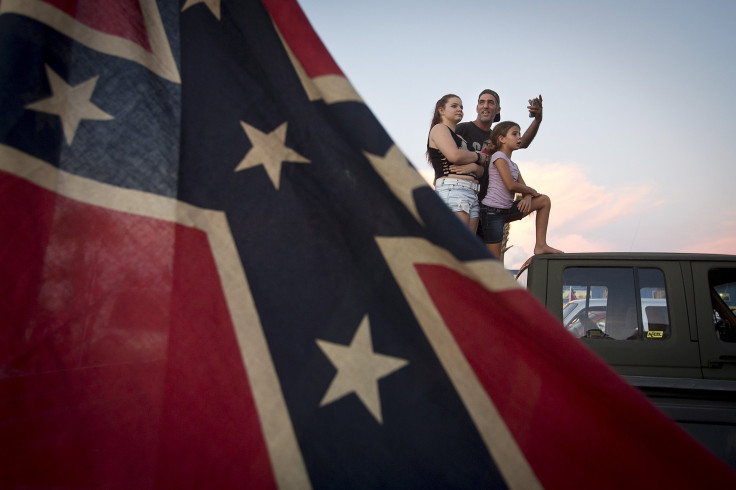Confederate Flag Debate 2015: Republicans Overwhelmingly Embrace 'Southern Pride' Banner, Poll Finds

As South Carolina's Republican-led legislature debated the removal of the Civil War-era Confederate battle flag flying over statehouse grounds Wednesday, a new Gallup poll revealed that the conservative view of the banner hasn’t changed in more than two decades. Roughly 78 percent of Republicans said the flag is a symbol of Southern pride. In 1992 and 2000, 75 percent and 74 percent of Republicans, respectively, held that view, according to Gallup.
The poll shows GOP views of the flag have not been altered by the shooting death of nine black worshipers at Mother Emanuel African Methodist Episcopal Church in Charleston last month. Shooter Dylann Roof, a 21-year-old white American who told authorities he targeted the historically black church to start a race war, was reportedly inspired by the pro-racial segregation and white supremacist ideas that have been associated with the South Carolina Infantry Battle Flag since the 1960s.
By contrast, Democratic views of the flag have shifted dramatically. Southern pride symbolism of the flag among Democrats dropped from 61 percent in 1992 to 32 percent in 2015, according to the Gallup survey.
While Americans overall are divided on Southern states displaying the Confederate flag -- 47 percent told Gallup it is all right, while 46 percent said it is not OK -- Republican support for its display has increased since the last survey. In 2000, 55 percent of GOP members supported displaying the flag on state property and on license plates. According to Gallup, its July 2015 survey showed that Republican support jumped to 67 percent, even after the June 17 Charleston church shooting.
Democrats supported Southern states flying the Confederate battle flag to a lesser degree (46 percent) in 2000. That support dropped to 27 percent in 2015.
The Gallup poll results are based on telephone interviews conducted from July 1-3 and on July 5. The survey included a random sample of 2,013 adults, aged 18 and older, in all 50 states and the District of Columbia.
© Copyright IBTimes 2025. All rights reserved.






















